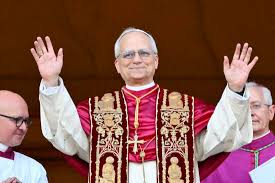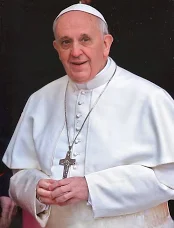The Pontifical Academy for Life on has today released a new document entitled “Friendship with persons with disabilities: the beginning of a new world. Learning from Experiences of Persons with Disabilities and Their Caregivers during the COVID-19 Pandemic.”
The note highlights that persons with disabilities and their caregivers deserve special attention and support because they have been disproportionately impacted negatively during the pandemic. It also advocates making “advance care plans and healthcare decisions” for them at all times, including during pandemics.
Drawn up in collaboration with the Vatican Covid-19 Commission, this latest document follows the notes of March 30, 2020 (Global Pandemic and Universal Brotherhood), of July 22, 2020 (Humana Communitas in the Age of Pandemic), and of February 9, 2021 (Old Age: Our Future).
Ethical concerns
The Pontifical Academy for Life underlines three fundamental ethical concerns as regards people with disabilities:
First, promoting accommodations for the specific needs of persons with disabilities to benefit from public health policies and interventions by involving them in planning and making decisions regarding their healthcare during a pandemic; secondly, going beyond regarding disability solely in biological terms and supporting disabled persons and their families “in coordinated and integrated ways across medical and other specialties, and various sectors of government and society.”
The third ethical concern involves the development of public health frameworks “based on solidarity and a preferential option for the poor and the vulnerable locally and globally.”
The document stresses the importance of listening to people with disabilities and proposes that a real “teaching authority of disability” be promoted and valued. This is because the lessons that disabled people can teach us are “provocative” and they challenge us to adopt a new perspective on the meaning of life.
People with disabilities also invite us to “to accept inter-dependence, mutual accountability, and care for one another as a lifestyle and as a way to promote the common good” in keeping with the teaching of the Church which looks to the suffering Christ, the “teacher of humanity.”
Practical recommendations
The note goes on to recommend several practical steps to guide us in our relationships with disabled people, including inviting Catholic healthcare organizations to show leadership in responding to the needs of persons with disabilities and their families during and after the pandemic and prioritizing vaccination of persons with disabilities, “on whom generic public health measures impose disproportionate burdens.”
The document then points at the Word of God that exhorts us to build a world “without borders, without prejudice against people with disabilities, where none is left alone to deal with the challenges of personal survival.” It also reminds us of the Gospel teaching that at the end of our lives and of human history we will be judged “in our love of our neighbour, especially the poor, the most vulnerable, and those regarded the least in the human family,” including persons with disabilities.
The note ends with an invitation to take steps during and after the pandemic to ensure that “after the mud of the devastation of this pandemic has been strained away, we will build a better world—a world in which persons with disabilities are always valued, befriended, and loved.”
ENDS
Source: Vatican News article

